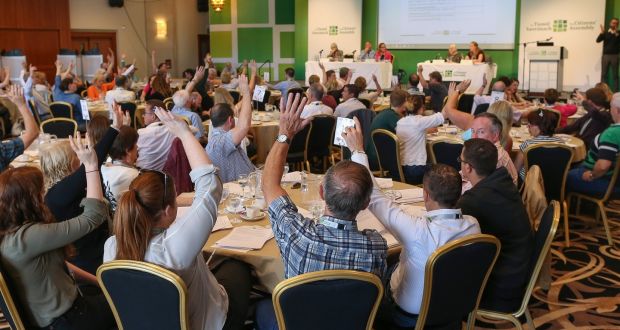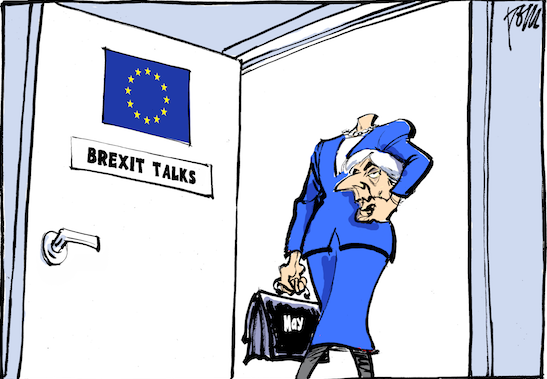Here are a couple of anecdotes about events that happened to me over the past two or three years and the lessons I’ve learned from them.
But, bien sur, I discuss how this relates to our EU discussions and how we might get out of this mess.
A Risky Decision
The first story happened last year. It illustrates very clearly the concept of “informed consent” as practiced by the NHS.
After an initial round of treatment to treat the cancer which was diagnosed just over a year ago, I was presented with a choice. I had responded well to the initial treatment and my cancer was in what the medics call a “partial remission”. This meant that there were very low levels of the disease in my body and I could expect a treatment-free period – the precise duration of which varies from person to person.
Optionally, I was offered additional, more advanced treatment which offers the prospect of a longer remission period. I would need to be referred to the nearest hospital offering this treatment, some 25 miles away. I had an initial appointment with a consultant there to help me to decide whether to proceed or not. The consultation was, in retrospect, one of the most satisfying consultations I’ve ever had. The doctor spelled out the side-effects of the treatment (not pleasant as she did not pull any punches) and there were risks. A small, but not insignificant, percentage of patients die from complications associated with the treatment. I was given a few weeks to make up my mind whether to proceed or not.
I spoke to a number of patients who had been through the procedure: the response was generally that it was worth it. (I recognised that these patients were from the majority who had survived: I have found no satisfactory way to communicate with those who had died!) I did agonize over the decision, but in the end, I chose to go ahead. I’m convinced it was the right thing to do. I’ve been told that I responded “very well”, but there are no guarantees. I have learned to live reasonably comfortably with the uncertainty.
My main point of this story is this: it was a prime example of the phenomenon we call “informed consent”. The medical staff had looked after me with all the care and attention I would expect from our beloved NHS and, above all, I was treated with respect as an adult capable of making an informed choice.
Turkish Delight
The second story comes from a couple of years earlier and strikes a lighter note. My wife and I went for dinner to a newish Turkish restaurant in town. Neither of us was particularly familiar with Turkish food and the menu was quite extensive (although rather heavily meat-based! See below!). The young woman who served us was friendly and helpful – at least, as far as she was able to be.
We had some queries about the choices before we ordered our food. I enquired what a particular dish was like, hoping to get some explanation about flavours, ingredients, etc. “It’s very nice” said our friendly waitress. Undeterred, we asked about another dish we had been considering. The reply was the same: “It’s very nice.” It had been obvious from the start that our waitress did not speak English as a first language. In was now becoming clear that her English language skills were limited. We felt sure that enquiries about any item on the menu would bring for the same reply: “It’s very nice.”
So, we made some random selections from the menu and had a pleasant meal in a convivial atmosphere. Altogether, it was an enjoyable evening. But our menu decisions could hardly be described as informed – more a stab in the dark, I would say.
An Informed Choice
I’m not suggesting that the two stories are directly comparable: the decision was altogether more significant in the first case than in the second. But the principle remains the same: an informed choice is preferable to an uninformed one.
I would contend that the 2016 EU membership referendum was a classic example of an uninformed choice. During the referendum campaign Leavers’ outright lies were “balanced” by Remainers’ wild speculations about the consequences of leaving. It was a debate between two wings of the Tory Party; Corbyn’s Labour was practically invisible. The BBC did a shabby job of striking a false balance between two positions that were not ethically equivalent. The chaos we see now is for the most part the consequence of the lack of reliable – or indeed truthful – information before the vote.
So, What Now?
The words above were drafted over 10 days ago. I’ve been waiting – in vain – for some clarity to emerge from the shenanigans at Westminster. But one thing is clear: we need, as a country, to slow down, reflect and do things properly, in a grownup way.

I think that we have a lot to learn from the Irish: in this case, on how to run referendums. Even at this late hour, there seems to be only one sensible way forward: to try to reach some sort of consensus on our relationship with the rest of Europe (and the world). And, of course, to start to heal the divisions which have opened up between the opposing sides.
Firstly, we need to take the time pressure off our decision-making processes, by requesting quite a long delay to the Article 50 procedure; 12 to 18 months would seem about right. This, of course, requires unanimous agreement from the other 27 EU member countries. I can only hope there’s still enough goodwill left, despite all our frustrating machinations, amongst our neighbours.
During the time gained, whoever is our Prime Minister needs to set up two institutions:
- A Grand Committee of reasonable-minded politicians from all the major parties, say 12-15 people in proportion to votes cast at the 2017 general election. This Committee will oversee the work of the:
- Citizens’ Assembly, a randomly selected forum of around 100 of our citizens, along the lines used recently in the Irish Republic. A description of how they set about their task can be found here and on Wikipedia here. The terms of reference for the Assembly are detailed below.
Leave extremists and their newspaper cheerleaders will go apeshit and good control of public order will be critical. Theresa May is almost certainly psychologically incapable – and it’s politically impossible – to oversee these necessary actions. Nominations, please, for a suitable candidate to replace her. We must find a way not to leave the selection decision to Tory Party activists. They are self-evidently part of the problem, not the solution.
The Grand Committee’s other main role will be to steer through the House of Commons a process which will lead to a vote on a resolution which will command a majority, and which will be credible with the EU27 and Brussels. No small ask!
Assembly Terms of Reference
If, as a result of the Grand Committee’s work, a referendum of the British public is required, the first task of the Citizens Assembly is to define the wording of a confirmatory vote question.
But the breakdown in the political process which the last EU referendum has created needs a long-term solution for Constitutional Change in the UK. Follow-on topics for review and recommendation to Parliament include, in roughly order of urgency:
- Replacement of our voting system for MPs with some form of preference voting, more fit for the 21st century than our broken first-past-the-post system.
- Replacement of the House of Lords by a 100% elected Senate (with NO shoo-in for CofE bishops), together with an appropriate voting system. A key issue should be how better to reflect the diverse needs of the non-English nations in the UK and the English regions.
- Disestablishment of the Church of England and the consequences of so doing: this could be more widely debated as how to protect the interests of religious and non-religious groups and ensure full secularisation of civil and political society.
- A system for electing our head of state.
My guess is that the five areas of work above would take more than five, and possibly as long as ten, years. Item 4 above may need to be pushed up the priority order if the present incumbent as head of state dies before this item is reached in the order above.
Laughing Stock to Respected Nation
The political fiasco of the past 3 years has reduced the status of the UK to an international laughing stock – most informed commentators would agree. (A short, silly example is here.) A programme of work as outlined above would go a long way to restoring the former respect for the UK (which, by this time, might be just England and Wales) on the world stage.


